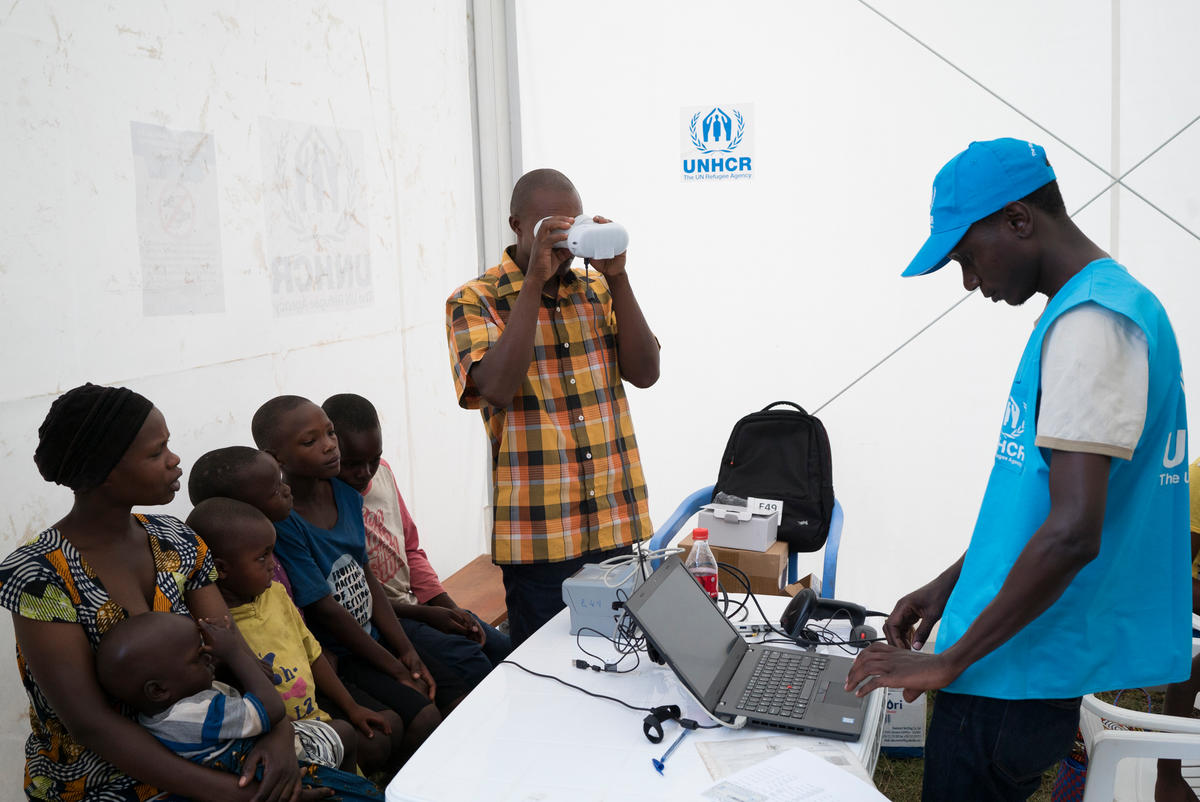Uganda starts biometric verification of refugees
Uganda starts biometric verification of refugees

UNHCR, the UN Refugee Agency, is supporting the Government of Uganda with its launch of a countrywide biometric data verification to fix any discrepancies in refugee data.
The massive exercise started yesterday (Thursday 1 March) in the Oruchinga refugee settlement in Uganda’s South-West region, home to thousands of Congolese refugees, before being rolled out across the country. UNHCR, working with partners, will be expanding the biometric verification exercise, deploying more than 400 additional staff, to over 30 locations covering more than 800 kilometers.
The data verification exercise is scheduled to be completed by September 2018 – including introduction of biometric checks at 180 food distribution sites.
UNHCR is providing necessary technical equipment and has also made available our biometric registration software, which has already been used to register some 4.4 million refugees in 48 countries across the globe.
Uganda provides protection to more than one million refugees, and maintains an open-door policy for people fleeing conflict and persecution.
The government retains the responsibility for the refugee response in Uganda, including registration and documentation of new arrivals.
The verification exercise will ensure that refugees and asylum-seekers are accurately reflected in the registration system and assist the Government of Uganda to enhance the accuracy of data. This will make certain that resources and services provided by UNHCR and its partners reach the intended recipients.
Uganda’s asylum policy framework is considered to be one of the most progressive in the world, providing refugees with plots of land, integrated with local host communities, on which to build new homes and to grow crops. Refugees in Uganda share public services, including healthcare and education, with Ugandan nationals, who have consistently welcomed refugees with generosity and hospitality.
Refugees are also given the right to work and start businesses, as well as freedom of movement. This means the refugee population in Uganda is spread throughout various refugee settlements and urban areas throughout the country, adding to the logistical complexity of the verification exercise.
Uganda has seen the size of its refugee population rapidly increase in recent years as it continues to welcome new arrivals from three ongoing emergencies in South Sudan, the Democratic Republic of the Congo (DRC) and Burundi. Already in the first two months of 2018, the country has become home to more than 50,000 new arrivals, predominantly fleeing violence in eastern DRC arriving on boats through Lake Albert.
For more information on this topic, please contact:
- In Nairobi, Teresa Ongaro, [email protected], +254 735 337 608
- In Kampala, Duniya Aslam Khan, [email protected], +256 772 701 101
- In Geneva, Babar Baloch, [email protected], +41 79 513 95 49









